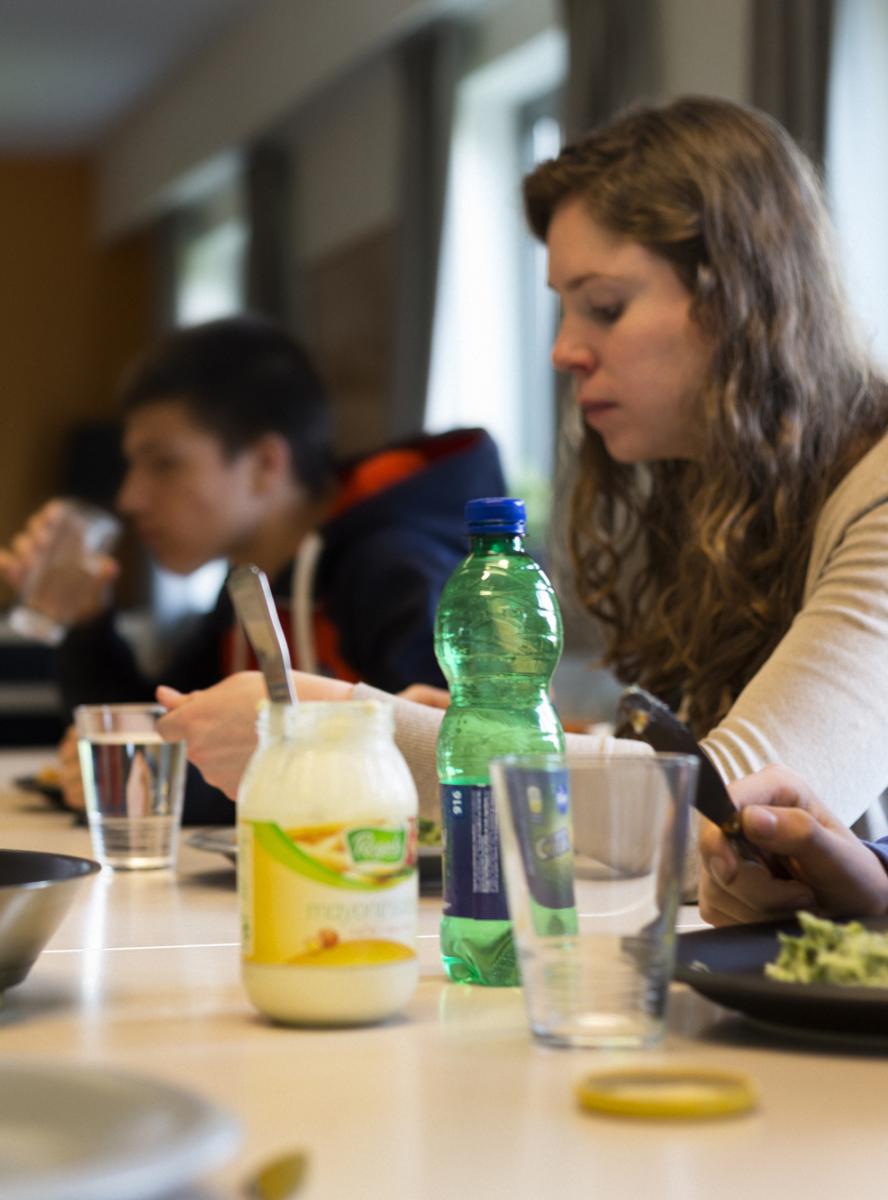
Faced with unprecedented challenges, the food aid sector is more than ever under pressure. The sector itself does not provide a structural solution to poverty, but it is an expression of solidarity and generosity, often a citizen initiative, which enables a great many people to feed themselves. Even just a few years ago, the King Baudouin Foundation would never have imagined having to support these actors, which face situations of great deprivation. For the second consecutive year, the Foundation has come to their aid, supporting 71 grassroots organisations with a total of 500,000 euros. The projects supported focus on improving the quality and efficiency of food aid and encouraging the social reintegration of vulnerable people, as well as developing the volunteer network.
The food aid sector is at the forefront of successive crises that affect the most vulnerable people. In Belgium, several hundred thousand people benefit from food aid to feed themselves. The cumulative effect of increases in the price of food and energy has meant that the number of people requesting aid continues to grow and amplifies a trend that had already been very visible during the Covid-19 crisis. Thus, in 2022, the Belgian Food Bank Federation observed an 18.2% increase in the number of beneficiaries compared with 2021, amounting to 193,344 beneficiaries each month. If one considers the aid provided by food parcels, social grocery stores and restaurants, the Social Services Federation estimates that 600,000 people rely on food aid to feed themselves.
A situation that is only getting worse
Whilst requests for food aid have increased, donations of food have unfortunately decreased, so that real difficulties are being created for the sector. Moreover, the food aid organisations are themselves faced with increases in their own costs linked to rising energy prices. At the same time, the voluntary sector is witnessing a fall in the number of volunteers. According to the Baromètre des associations 2022 published by the King. Baudouin Foundation, the number of volunteers involved in an association is 32% lower than before the Covid epidemic. Yet, the daily functioning of food organisations relies heavily on volunteers.
Much more than simply food aid
In addition to meeting a basic need, the food aid sector plays another essential role in society, that of contributing to the social integration of people in poverty. For instance, grassroots actors create bonds with their beneficiaries, provide them with convivial activities together with other beneficiaries and help put them on the path to regaining their rights.
Being very much aware of the societal impact of a sector facing considerable difficulties, in mid-2022 and for the second consecutive year, the King Baudouin Foundation launched a new call for projects aimed at supporting and strengthening food aid organisations. An independent jury of experts selected 71 organisations, from across the four corners of Belgium, to receive a total of 500,000 euros.
Three major challenges
The initiatives selected for support are all trying to meet three key challenges faced by the sector:
- managing the increase in requests for aid by improving the efficacy of its provision and offering better quality food products;
- expanding the network of volunteers, without whom nothing would be possible. They are the linchpin of these many food aid initiatives. Moreover, a great many of the volunteers are often people who have experienced insecurity themselves or are former beneficiaries of such support;
- providing a warm welcome that respects the dignity of each and every one and supports each one as well as possible, in function of their needs.
Here are just three examples of the projects supported, with comments from the project managers:
̏Vulnerable people should always have access to top quality products. It’s a matter of dignity”, Alice Berwart, Nojavel association, Forest (Brussels).
Each month, this association distributes of totally organic food parcels to some 1,000 households, comprising fruit, vegetables, bread and other fresh products. A KBF grant supports the association’s efforts to increase its staff by employing volunteers who have all been beneficiaries of the association, thus contributing to their social reintegration.
̏We think that we must develop ties with small fruit and vegetable producers, so that we can provide local and ethical products and, above all, we must give our beneficiaries the opportunity to choose for themselves the foods they’d like to have. ˮ Baudouin Blankaert, Samaritans Committee, Brussels.
Adjoining the Samaritans Committee’s social restaurant Sam’en VRAC, a grocery store selling loose products will be created in collaboration with the asbl VRAC (Vers un Réseau d'Achat en Commun – Towards a Joint Purchasing Network). Supported by the KBF, this project will enable local residents of the Marolles neighbourhood, as well as Samaritans beneficiaries, to have access to good quality products from local and sustainable agriculture.
̏We would like to offer training sessions to our volunteers and beneficiaries to learn how to manage their waste, as well as to discover new ways of eating. ˮ Gérard Hansen, Saint-Vincent De Paul association, Pepinster.
‘0 waste, 100% taste’, is the joint training project for volunteers and beneficiaries of food aid that the KBF is supporting. It will give practical advice, for instance, on discovering certain food products and how to prepare them, information concerning expiry dates and it will raise awareness about the cost of not recycling.
See the list of 71 projects supported, by province, as well as the contact details for each project.
Read an account about a project in ‘Nojavel, more than just food aid’.